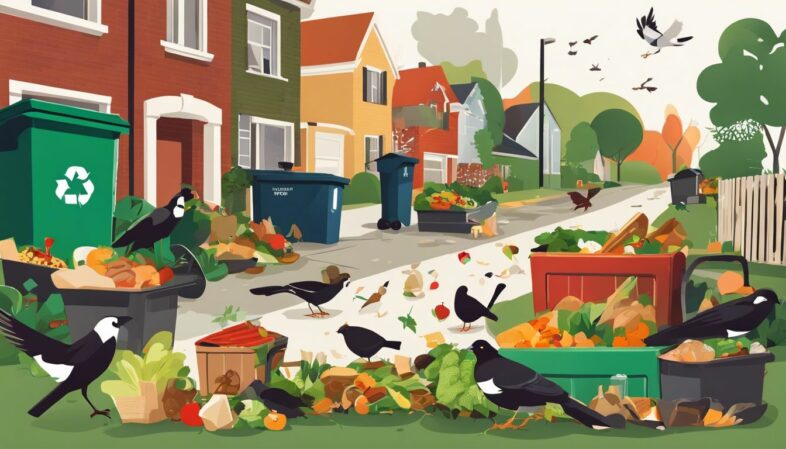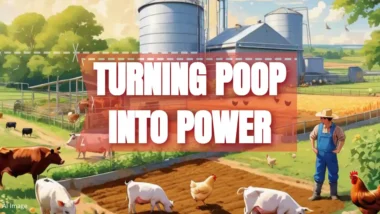It might seem obvious that it's way beyond the time for English local authorities to implement separate food waste collections (SFWCs). Wales and Scotland have been doing it successfully for 7 years. Now, at last, weekly SFWCs are set to become a legal requirement for all English LAs by 2026.
The government's implementation of food waste collection from the curbside along with household waste throughout England is to be applauded because it is a necessary step to achieve the national Net-Zero Carbon 2050 target.
Separate Food Waste Collections By 2026 In England
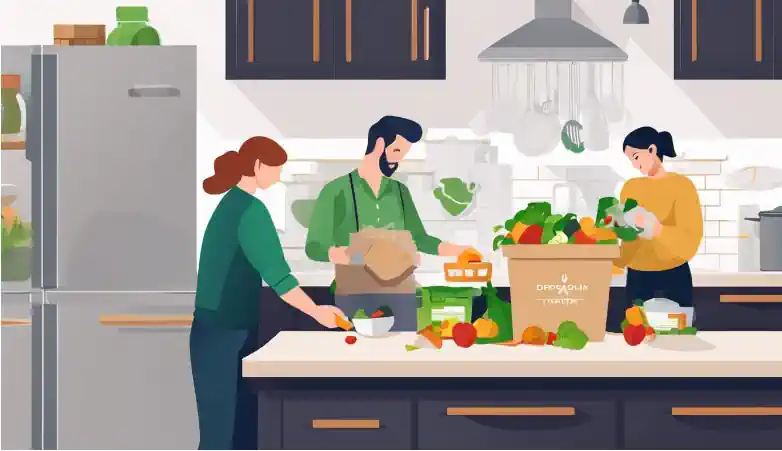
As you open your kitchen bin to toss away another plateful of food scraps, a thought might cross your mind: Where does all this waste end up? In England alone, millions of tonnes of perfectly edible food are thrown into general rubbish annually.
It's not just about guilt over wasted resources; it's also an environmental conundrum with leftovers languishing in landfill sites, producing harmful methane gas. Fortunately, a visionary plan is set to transform how we dispose of our potato peelings and tea bags.
The Department for Environment, Food, and Rural Affairs (Defra) has made a promise that could see your banana skins and uneaten toast heading off to greener pastures—literally. By 2026, weekly collections dedicated solely to disposing of food waste are expected to roll out across England.
This article will guide you through what these changes mean for the environment and your household routine while highlighting some smart solutions for potential hurdles along the way.
Ready to join the food recycling revolution? Keep reading about separate food waste collections—change is coming!
Separate Food Waste Collections – Key Takeaways
- England will start weekly food waste collections for homes and businesses by 2026. This plan aims to reduce landfill use and make better energy from leftovers.
- Households will get bins called caddies for their food scraps, with free bags to keep them clean. These caddies help turn wasted food into useful compost or energy.
- The government promises to give money to help cover the new waste collection costs. This should make it easier for local areas to do this work without extra stress on their budgets.
- More leftover food going into anaerobic digestion means more biogas can be made into biomethane, a cleaner fuel that's good for trucks and buses.
- But on the negative side, the waste management industry faces challenges like keeping microplastics out of recycled materials. New rules and technology are needed to solve these problems.
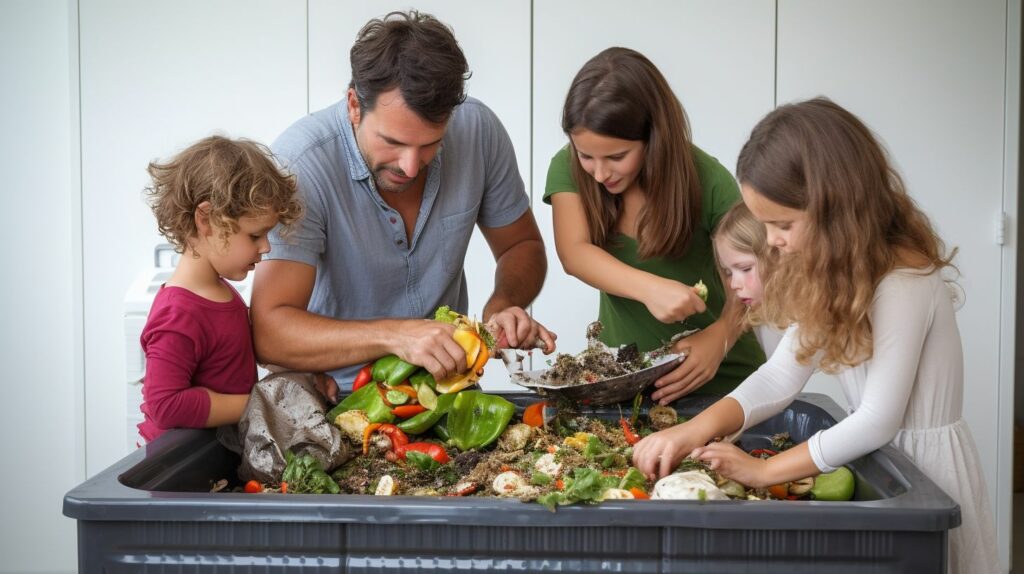
Current State of Food Waste Collection in England
“Currently, only a proportion of just less than half of collection authorities in England are collecting food waste, leading to inconsistent practices across different areas.
In comparison, both Wales and Scotland have embraced anaerobic digestion of food waste at a higher rate, showcasing the potential for improvement in England's approach to managing food waste.”.
Proportion of Collection Authorities Currently Collecting Food Waste
Understanding the landscape of food waste collection gives us a clear picture of where England stands on this environmental issue. Remarkably, only about half of the collection authorities in England have implemented a separate food waste collection system. Here's a detailed breakdown in HTML table format to illustrate the current state of affairs.
| Region | Proportion of Authorities Collecting Food Waste Separately |
|---|---|
| England | ~50% |
| Wales | 100% (All councils) |
| Scotland | Data not specified but probably over 75% |
This contrast puts into perspective the efforts needed to align with the more progressive systems in place across other regions of the UK.
The commitment to weekly collections for households and businesses by 2026 will be a significant step forward, creating a more unified approach to handling food waste.
The introduction of food caddies and the provision of caddy liner bags will support the transition to these new waste management practices. With Wales already showcasing full participation in weekly food waste recycling services, England's plan for separate collections could potentially revolutionise its approach to sustainability.
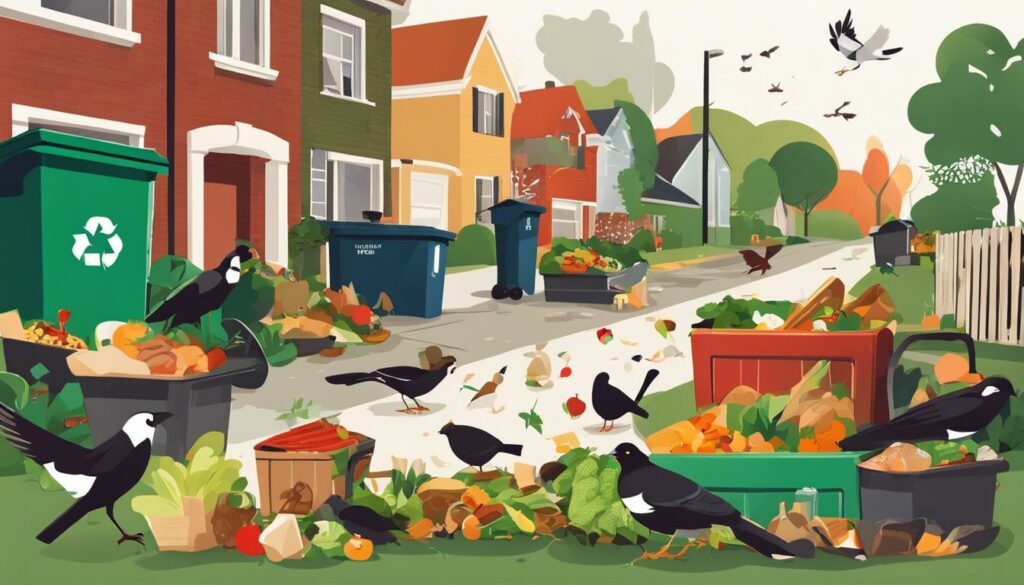
Comparison of Food Waste Collection in England with Anaerobic Digestion of Food Waste in Wales and Scotland
While the proportion of collection authorities currently actively engaging in food waste collection in England is a topic of consideration, a closer examination reveals a stark contrast in the implementation of food waste strategies when we compare England to its neighbours.
Wales and Scotland have not only established more rigorous regulations for the separation of waste streams but have also significantly invested in the anaerobic digestion of food waste. This process not only reduces landfill usage but also creates biogas, which can be refined into biomethane, a cleaner fuel alternative for transport, especially heavy goods vehicles.
| Criteria | England | Wales | Scotland |
|---|---|---|---|
| Current Regulations | Plans for separate collections by 2026 | Mandatory separation of waste streams including food waste | Mandatory separation of waste streams including food waste |
| Collection Containers | Optional three-container system | Multiple containers for different waste streams | Multiple containers for different waste streams |
| Anaerobic Digestion | Less prevalent, with plans to increase | Widely implemented, with notable success | Widely implemented, integrated into national strategy |
| Environmental Impact | Anticipated reduction in landfill use & increased biomethane production | Reduced landfill, increased biomethane production | Reduced landfill, increased biomethane production |
| Future Plans | Mandatory food waste collection by 2026 | Continued use of existing investment in waste management infrastructure | Continued development investment in waste management infrastructure toward full national food waste collection |
The table highlights key differences and sheds light on the progressive steps Wales and Scotland have taken. England's roadmap to 2026 aims to align more closely with these practices, indicating a pivotal shift towards sustainability and responsible waste management.
The Plan for Separate Food Waste Collections
The plan for separate food waste collections in England involves implementing weekly collections for households and businesses, launching in 2026. The use of food caddies and the provision of caddy liner bags will also be key parts of the initiative.

Weekly Collections for Households and Businesses
Everyone will start seeing food waste picked up every week. This is going to happen for houses and businesses alike.
- Starting in 2026, regular pick-ups of food waste will keep kitchens cleaner and help the environment.
- Using special bins called food caddies, people can easily separate leftover scraps from other rubbish.
- Government rules say food must be collected in separate containers, so trucks will come around once a week just for this.
- Food caddies are small enough to fit in kitchens but big enough to hold a week's worth of waste.
- Free liner bags for these caddies might be given out to keep things tidy and smelling fresh.
- Not only homes but also places like restaurants and shops will have their food waste taken away weekly.
- This new system means more jobs for people who drive trucks and work at recycling plants.
- Less garbage going into landfills is good news because it means cleaner air and less harm to our planet. Plus, if we don't reduce the waste sent to landfills, there won't be any space left in them very soon!
- More leftover food will go to places that turn it into energy, so we can use less oil and gas.
- Trucks will also carry garden waste as well as food, making it a full green service every seven days.
Separate Food Waste Collection will Launch in 2026
Moving from plans to action, the big change is set for 2026. That's the year when weekly food waste collections kick off for both homes and businesses across all of England. It's a major step towards cutting down on trash and making better use of leftovers.
The idea is simple: separate out your potato peels, apple cores, and bread crusts into special bins called caddies. These caddies will then be picked up every week. Through this system, we'll turn more of our unwanted food into something useful instead of letting it rot in landfills.
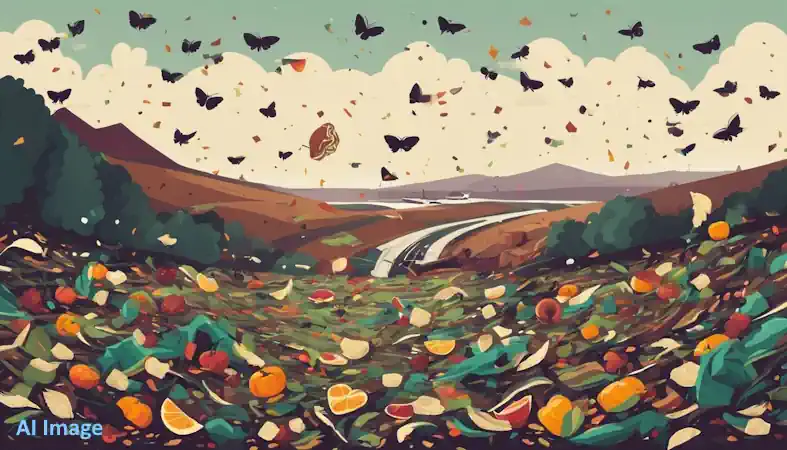
Use of Food Caddies
As 2026 approaches, everyone will start seeing food caddies as a familiar sight in homes and businesses. These small containers are for scraping leftovers off plates or tossing out spoiled fruits and veggies.
They're quite handy, fitting neatly in kitchen corners or under sinks. Plus, they make sure food scraps stay separate from other trash.
Cities will give out these caddies to encourage people to collect their food waste separately. This is not only cleaner, but also much better for the environment. With these little bins come special caddie-lining bags that keep things tidy and help control odors.
Keeping leftover bits of meals in these makes it simpler to turn them into compost or even energy later on! It's all part of making it easy for you to help cut down on carbon emissions by getting rid of waste the right way.
Provision of Caddy Liner Bags: Recent Research
While using food caddies is a step towards greener waste handling, another important aspect is what goes into these caddies. Scientists have recently focused on the liners used in food waste caddies.
They want to ensure these bags help rather than hurt our earth. Research shows that providing eco-friendly caddy-liner bags makes it easier for people to recycle food waste. These bags can also break down without harming the environment.
Creating the right kind of bag is key. This means making sure they are strong enough so they don't rip and make a mess, but also that they won't stick around forever like plastic does.
The studies found that certain materials work well for this job and can be turned into compost along with food waste. This exciting finding guides councils as they get ready for England's new recycling plan set for 2026.
The Impact of the New Separate Food Waste Collection Initiative
The introduction of separate food waste collections in England is expected to have a significant positive impact on the environment, households, and the waste management industry.
To learn more about how this initiative will create positive changes, continue reading the full blog post.

Environmental Benefits
Food waste that's kept apart from other rubbish helps our planet. Once collected, it can be turned into biomethane at an anaerobic digestion plant. This biomethane is great because it takes the place of fossil fuels and cuts down on harmful emissions from heavy goods vehicles (HGVs).
This initiative not only addresses environmental concerns by managing food waste efficiently but also helps in the drive toward a more sustainable and eco-friendly approach to logistics and distribution.
Schools, homes, and businesses will all join in weekly food waste collections. Used right, this plan means less organic material ends up in landfills where it would create methane—a truly awful gas for the amount of global warming it causes per unit of weight.
It’s a big step towards a cleaner earth and reaching net zero by 2050.

Impact on Households
Households will see big changes with the new food waste collections. Every home will get a special bin called a caddy for their food scraps. This means throwing away leftovers and peels will be very easy, helping everyone do better at recycling. Even if slightly almost 50% of households fail to sort their food waste into their caddies, the outcome is still seen to be positive.
Plus, some people won't have to pay to toss out garden waste anymore.
Due to a surprising psychological fact that recent research has discovered, this plan might also save families money.
When people sort out their food waste, they very often notice how much they throw away and start buying less. This can lead to spending less on groceries each week.
When they buy less food, families feel good knowing they help the Earth by wasting less food and creating energy from scraps instead of just tossing them in the trash. Don't forget that landfilling incurs a hefty landfill tax in the UK!
The result is that councils save money.
This is a virtuous circle that will mean that the cost to the ratepayers of their waste management will drop.
Influence on the Waste Management Industry
The plan for separate food waste collections in England is set to significantly impact the waste management industry. With more food waste directed towards anaerobic digestion, there will be an increase in biogas production, which can then be upgraded to biomethane.
This biomethane is crucial for heavy goods transport, contributing to cleaner and more sustainable fuel options. The shift towards weekly food waste collections also means that the waste management industry will need to:
- adapt its processes and capacities to accommodate this increased volume of organic materials,
- potentially leading to innovation and improvements in existing infrastructure.
Furthermore, as the UK government aims to eliminate all reusable or recyclable waste going to landfills by 2050, this presents a clear directive for the waste management industry.
It implies a significant transformation in how waste is handled and processed, requiring greater reliance on recycling and reprocessing facilities.

Challenges and Solutions for Implementing the Plan
Challenges for implementing separate food waste collections include:
- the costs of new infrastructure and
- one-off transitional funding will be needed from the central government
- as well as the ability of cash-strapped local authorities to staff the procurement process.
However, these challenges can be addressed through support from the central government and industry collaboration.
Costs and Funding by Central Government
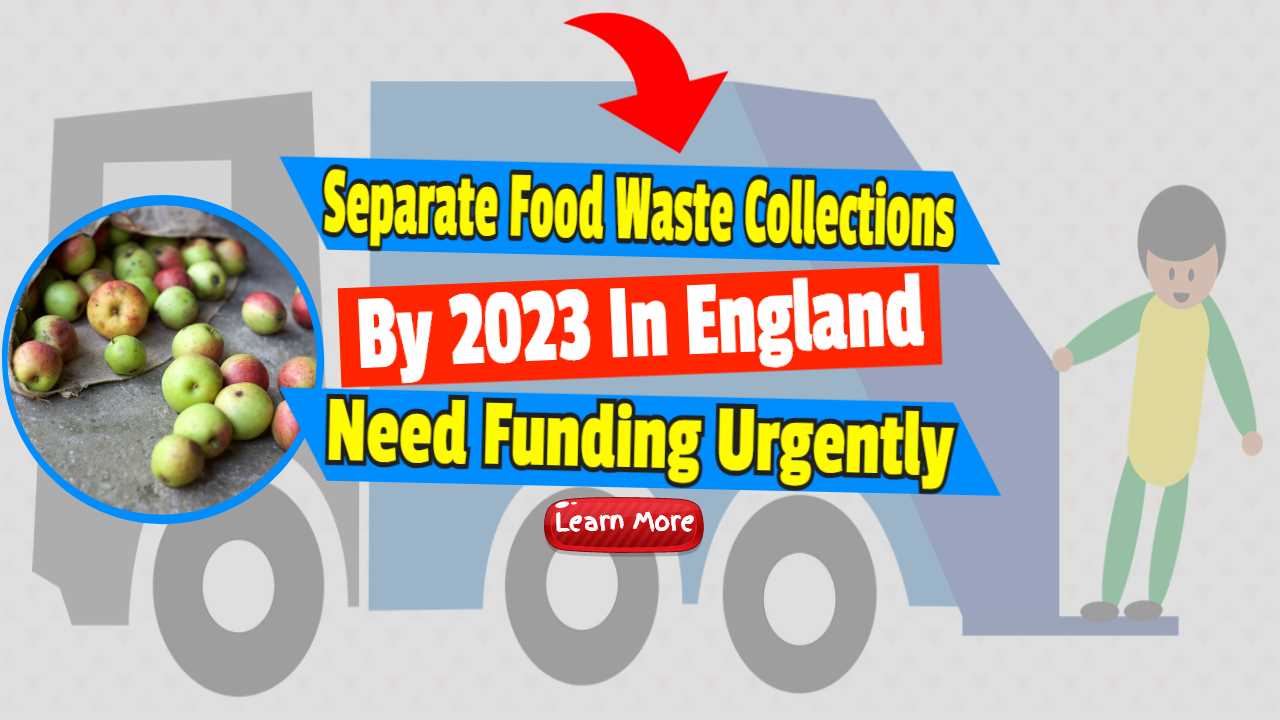
The Central Government has indicated that it plans to offer reasonable funding to cover the extra costs resulting from the changes in waste collection.
This money will be sourced to avoid new burdens of funding on local councils, and payments are possible through Extended Producer Responsibility for packaging.
The aim is to support local authorities in implementing separate food waste collections by 2026, ensuring that the financial burden does not hinder the successful rollout of this initiative.
Furthermore, the government needs to provide sufficient financial support to enable a smooth transition towards separate food waste collections across England.
By offering reasonable funding and utilising payments through Extended Producer Responsibility for packaging, local authorities can effectively manage any additional costs arising from these changes without compromising on the implementation process.
Ability of Local Authorities to Staff the Procurement Process
Local authorities must ensure that their staff are well-prepared to handle the challenges associated with procuring the resources needed for separate food waste collections. This process will require specialised knowledge and skills related to waste management, budgeting, and supplier negotiations.
The changes will result in higher costs for councils but will allow them discretion in waste collection. Therefore, local authorities must employ competent staff who can effectively manage the procurement process and navigate potential obstacles.
The government has committed to providing “reasonable funding” to cover any extra costs arising from these changes. This financial support will come from new burden funding and payments through Extended Producer Responsibility for packaging.
Waste Management Industry's Poor Record of Removing Microplastic Content in MRFs and During Composting Policy
The waste management industry has struggled with minimising microplastic content in Material Recovery Facilities (MRFs) and during composting. This is a significant concern as it can lead to environmental contamination, affecting soil health and potentially water sources.
With the growing focus on sustainability and eco-friendly practices, addressing this issue is crucial for the overall success of waste management strategies.
To combat this challenge, rigorous monitoring and stricter regulations are essential to ensure that MRFs effectively filter out microplastics from recyclable materials. Additionally, composting policies need to be re-evaluated to minimise the presence of microplastics in organic waste.
Conclusion
In conclusion, separate food waste collections in England by 2026 will bring significant environmental benefits. The new initiative aims to make recycling easier and more efficient for households and businesses.
By implementing weekly collections and providing food caddies, the plan simplifies the process of managing food waste. This practical approach can lead to a substantial reduction in landfill waste and contribute to a more sustainable future for England.
As we look ahead to 2026, let's embrace these changes with optimism and commitment to building a greener and healthier environment for generations to come.
FAQs
1. What is the goal of separate food waste collections in England by 2026?
The plan is to start separate collections of food waste from homes and some other places like shops. This aims to recycle more and cut down on waste that just sits in landfills.
2. How will this change help with recycling rates?
Collecting food waste separately can bump up recycling rates because it makes sure we can turn leftovers into things like renewable energy or natural fertiliser, instead of just throwing them away.
3. Will everyone in England have to do this?
Yes, all households in England will be providing kerbside collections for food scraps so that we can recycle them properly no matter where you live, ending the postcode lottery when it comes to recycling.
4. Does this mean less plastic pollution too?
That's right! Less rubbish means fewer chances for plastic pollution. Plus, there’s a new tax on plastic packaging and rules that make companies responsible for what they make, which should also help reduce litter.
5. Are there any new charges I should know about?
Well, you might've heard about the bag charge that supermarkets must charge for single-use carrier bags getting higher—it's all part of making us think twice before using plastics that end up as trash.
6. What if businesses or people don’t follow the new rules?
They need to watch out because one day, in the future, not following these efforts to reduce our impact on the environment may get them into trouble with fines or penalties—it's serious stuff aimed at keeping our planet clean.
Facts About Food Waste Recycling and Anaerobic Digestion
- AD is classified as the optimal form of treatment for unavoidable food waste. Source – WRAP
- 7MT of solid food waste was sent to AD in 2019. Source: WRAP
- The industry’s current capacity for food waste recycling is 3.2Mt. Source: ADBA
- 2.3Mt of food waste generated by households is disposed of in either a landfill or a sewer. Source: WRAP
- Treating it through AD, we could generate up to 2.7TWh of energy. Source: ADBA
- Upgraded to biomethane, this could abate over 2Mt of CO2 equivalent—this equals the annual emissions from 900,000 petrol cars. Source: ADBA
- The AD process also generates a valuable biofertiliser, digestate, which helps restore soils and displaces fossil-based fertilisers.
Source URLs:
- https://www.edie.net/weekly-food-waste-collections-to-launch-in-england-by-2026/
- https://app.croneri.co.uk/feature-articles/new-food-recycling-laws-across-uk
- https://www.independent.co.uk/climate-change/news/government-england-therese-coffey-network-food-waste-b2433508.html
- https://www.endsreport.com/article/1844775/government-announces-plans-long-overdue-waste-collection-reforms
- https://www.gov.uk/government/news/simpler-recycling-collections-and-tougher-regulation-to-reform-waste-system
- https://commonslibrary.parliament.uk/household-waste-collection-in-england-and-wales/

